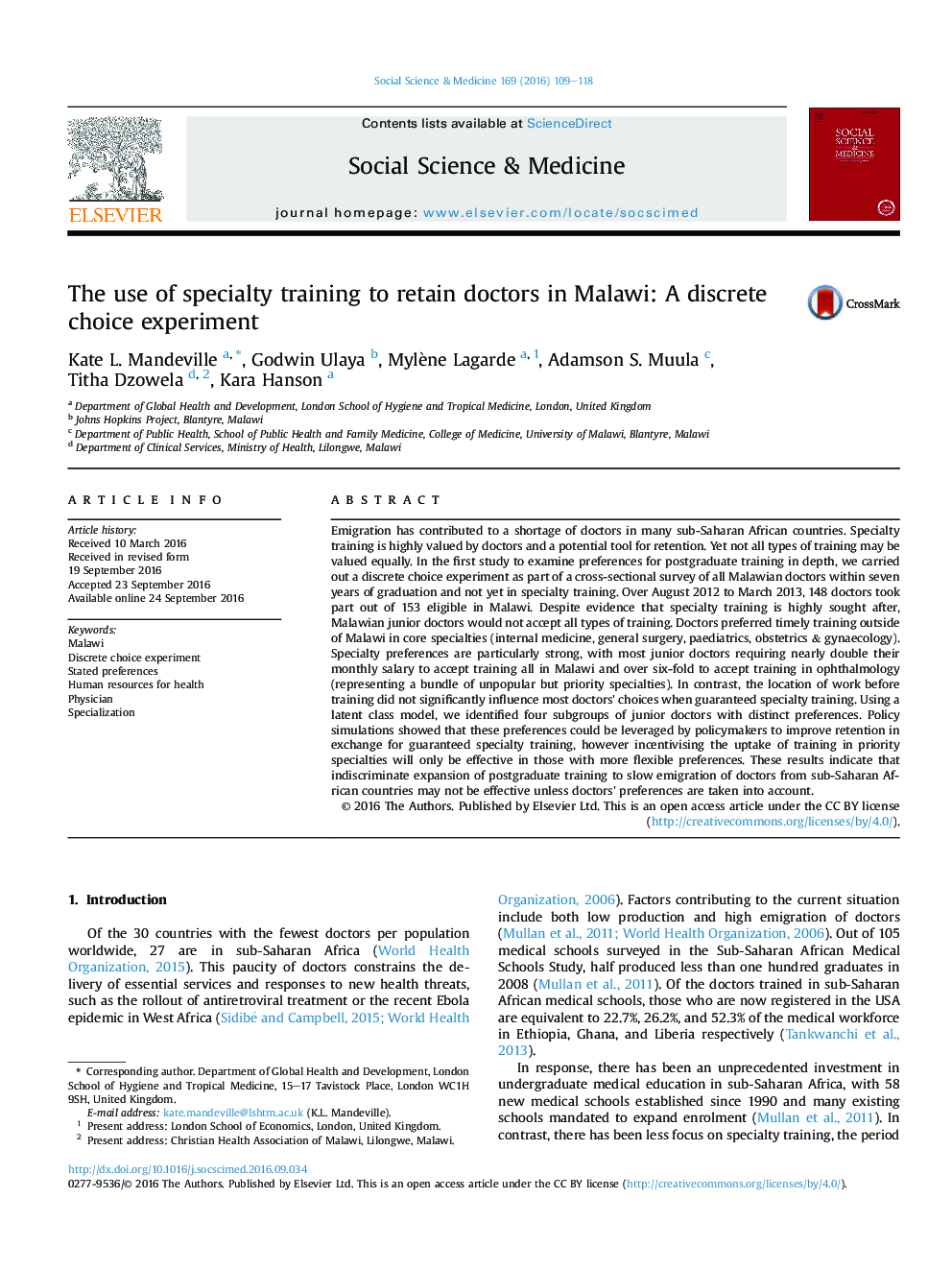| کد مقاله | کد نشریه | سال انتشار | مقاله انگلیسی | نسخه تمام متن |
|---|---|---|---|---|
| 5046895 | 1476000 | 2016 | 10 صفحه PDF | دانلود رایگان |
- Specialty training is valued by doctors and could be used to prevent emigration.
- Not all training, however, may be valued equally.
- Junior doctors preferred timely training outside Malawi in popular specialties.
- Latent class modelling identified four groups with distinct training preferences.
- Policy simulations show that these could be leveraged to improve retention.
Emigration has contributed to a shortage of doctors in many sub-Saharan African countries. Specialty training is highly valued by doctors and a potential tool for retention. Yet not all types of training may be valued equally. In the first study to examine preferences for postgraduate training in depth, we carried out a discrete choice experiment as part of a cross-sectional survey of all Malawian doctors within seven years of graduation and not yet in specialty training. Over August 2012 to March 2013, 148 doctors took part out of 153 eligible in Malawi. Despite evidence that specialty training is highly sought after, Malawian junior doctors would not accept all types of training. Doctors preferred timely training outside of Malawi in core specialties (internal medicine, general surgery, paediatrics, obstetrics & gynaecology). Specialty preferences are particularly strong, with most junior doctors requiring nearly double their monthly salary to accept training all in Malawi and over six-fold to accept training in ophthalmology (representing a bundle of unpopular but priority specialties). In contrast, the location of work before training did not significantly influence most doctors' choices when guaranteed specialty training. Using a latent class model, we identified four subgroups of junior doctors with distinct preferences. Policy simulations showed that these preferences could be leveraged by policymakers to improve retention in exchange for guaranteed specialty training, however incentivising the uptake of training in priority specialties will only be effective in those with more flexible preferences. These results indicate that indiscriminate expansion of postgraduate training to slow emigration of doctors from sub-Saharan African countries may not be effective unless doctors' preferences are taken into account.
Journal: Social Science & Medicine - Volume 169, November 2016, Pages 109-118
